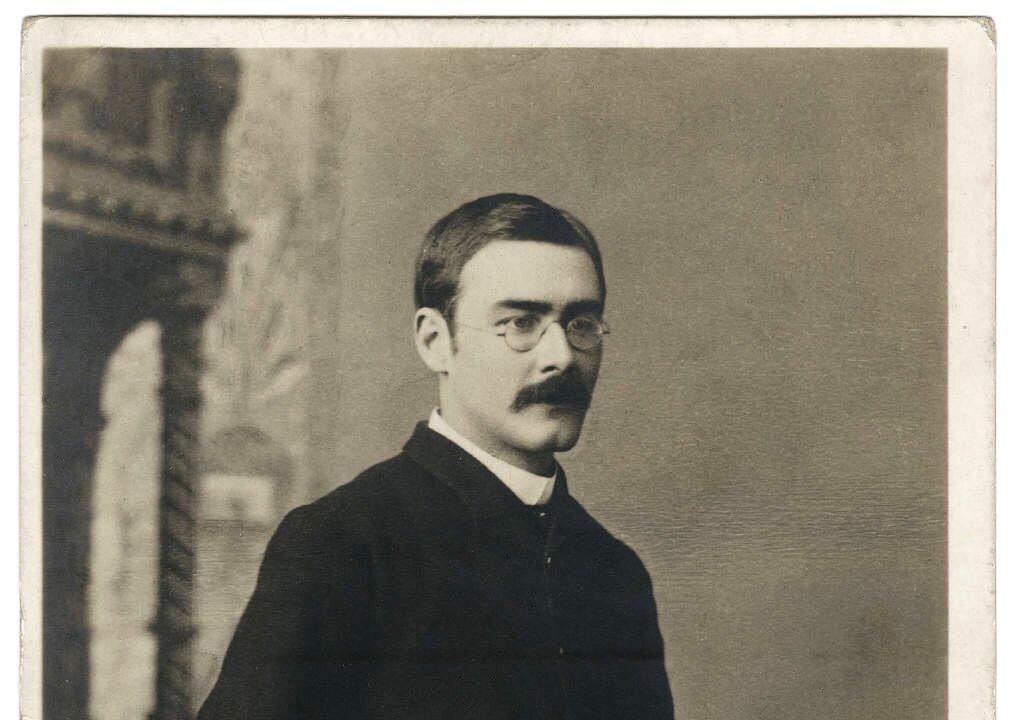Sitting on my desk is a 776-page volume of poetry that will in 2021 become a hoary centenarian. Embossed in gold on the cover is a swastika, a Hindu symbol of the sun, prosperity, and good luck, once a popular icon even in the West until it was stolen and corrupted by the Nazis.
In 1907, the man who composed these verses won the Noble Prize for Literature at the remarkably young age of 41. He also wrote hundreds of short stories and several novels. Many of these were made into films in the 20th century, among which were “The Jungle Book,” “Kim,” “Gunga Din,” “Wee Willie Winkie,” “Captains Courageous,” “Soldiers Three,” and “The Man Who Would Be King.” (Reader, if you haven’t seen this last film, starring Sean Connery, Michael Caine, and Christopher Plummer, treat yourself to a great movie this winter.)






